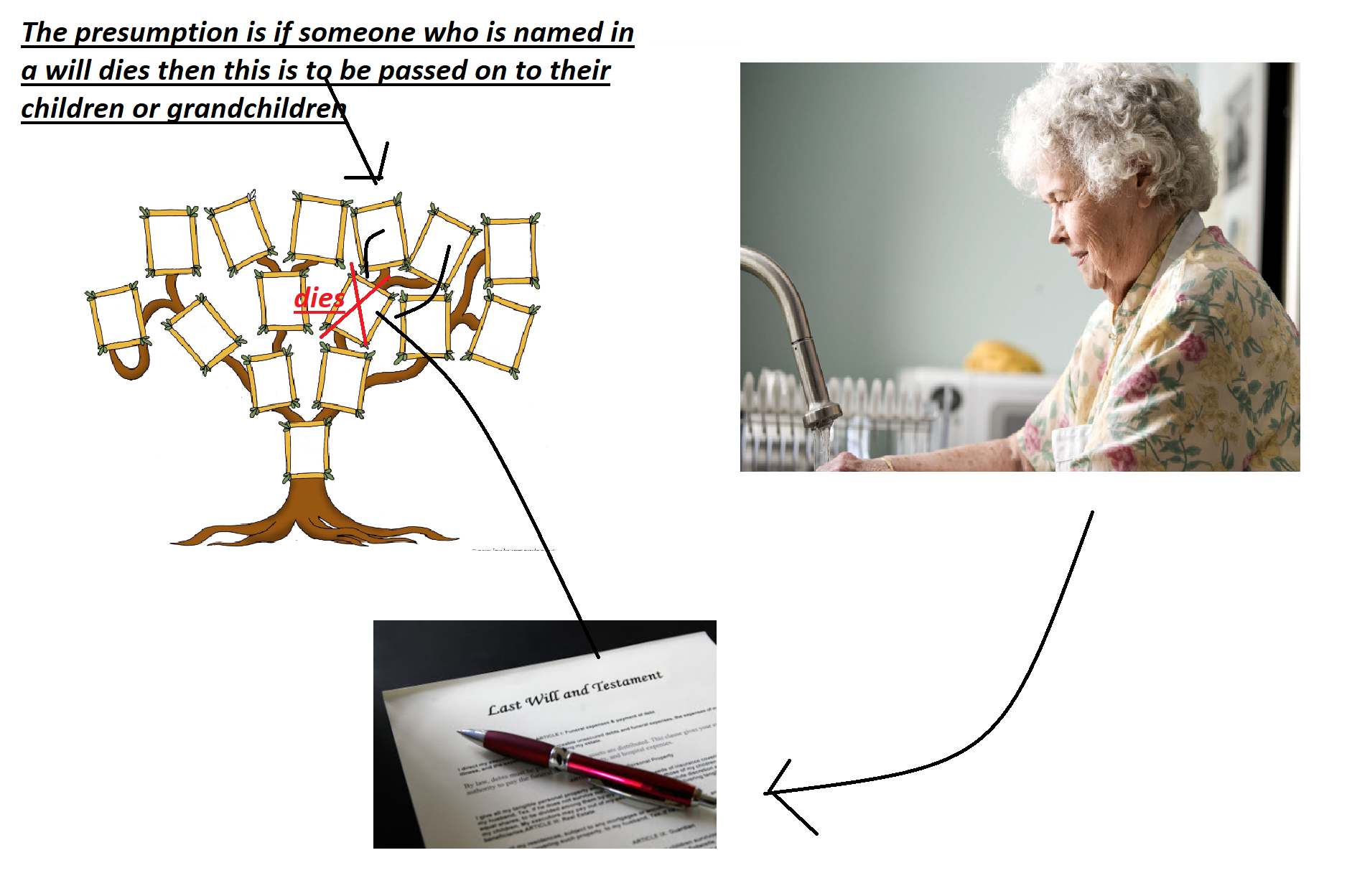Devlin’s Trs v Breen, 1945 SC HL 27
Citation:Devlin’s Trs v Breen, 1945 SC HL 27
Rule of thumb:If a person is named in a will and dies, does this pass on to their children or grandchildren as the case may be? Yes, it does, but it does not pass onto cousins etc.The Court in this case affirmed the principle of ‘fairly strict accretion’ – accretion applies where by the clear terms of the will a legatee loses their property entitlement with this property passing on to another legatee under the will. If someone is named in a will and then they die before receiving this it automatically passes on to their own immediate heirs, or in some circumstances distant cousins in their place. For accretion to apply, where this property would go to someone else in the will rather than the deceased’s legatees heirs, clear and specific provisions strictly have to be in place.
Background facts:
The facts of this case were that there was a legacy saying, ‘My estate to be divided equally between my 2 children or the survivor’. One of the children died before their parent, although this person had children herself who were the grandchildren of the deceased, and the other child of the deceased argued that accretion applied by the terms of this will meaning her siblings children were not entitled to anything.
Judgment:
The Court held that this was not a sufficiently clear intention of the deceased to implement accretion in this case. The deceased grandchildren in this case were entitled to take the rights of their deceased parent.

Ratio-decidendi:
‘the fact that there is a destination-over to the survivor is no obstacle to the application of the condition ... for it has long been established that neither a clause of survivorship not a destination-over excludes the operation of the (accretion) rule’, Lord MacMillan at 37
Warning: This is not professional legal advice. This is not professional legal education advice. Please obtain professional guidance before embarking on any legal course of action. This is just an interpretation of a Judgment by persons of legal insight & varying levels of legal specialism, experience & expertise. Please read the Judgment yourself and form your own interpretation of it with professional assistance.

